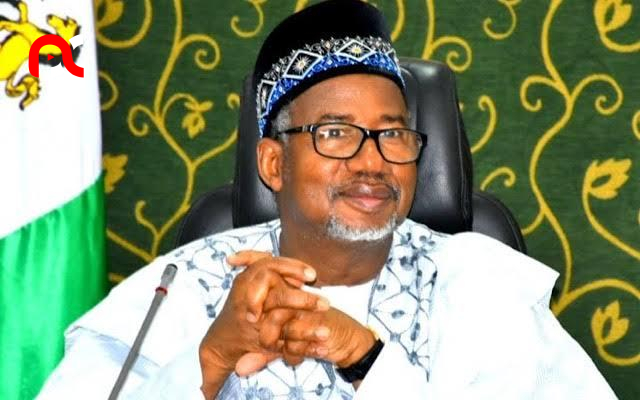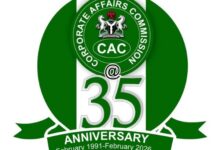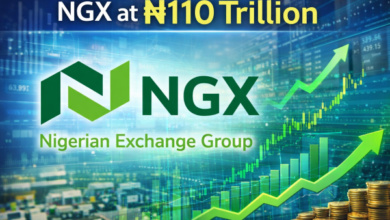Jakande Memorial Lecture: Journalism, Nation-Building and the Nigerian Question – Bala Mohammed’s Wake-Up Call to the Press

In a stirring keynote address that blended historical reflection, journalistic homage, and a visionary roadmap for national renewal, Bauchi State Governor, Senator Bala Abdulkadir Mohammed, delivered the 3rd Lateef Jakande Memorial Lecture on Wednesday, July 23, 2025, at the EDMARK D’Podium International Event Centre, Ikeja, Lagos.
Themed “Journalism and the Challenge of Nation-Building in a Multi-Ethnic Society,” the lecture was a profound meditation on the role of the media in a divided yet hopeful Nigeria. Drawing on Nigeria’s post-independence media tradition, contemporary institutional threats, and his personal experience with political backlash, Bala Mohammed made a clarion call for journalistic rebirth in an age of polarization, digital misinformation, and institutional fragility.
Journalism as Nigeria’s Original Nation-Builder
“The history of Nigeria is, in many ways, the history of its journalism,” Bala Mohammed declared, drawing a powerful line from the nationalist press of Herbert Macaulay, Azikiwe, and Enahoro to the civic-minded governance of Alhaji Lateef Jakande. He recounted how Jakande’s newsroom values—honesty, simplicity, and accessibility—translated seamlessly into his leadership style as Lagos State Governor, making him a rare example of a journalist-statesman.
In that light, he argued that no profession is better suited for grooming future public servants than journalism, which trains individuals to listen, investigate, challenge power, and, above all, serve the public interest.
When the Pen Becomes a Beacon—and a Burden
Reflecting on Nigeria’s troubled political past, Bala Mohammed reminded the audience of the dark eras of press proscription and state intimidation, citing examples such as the proscription of The Guardian, African Concord, and Vanguard in the 1990s. He warned that though military decrees have receded, today’s media faces new threats: corporate capture, algorithmic manipulation, and ethical compromise.
“Today, the threats are different but no less insidious. The digital age has opened the floodgates of information—and misinformation. Politicians and corporations now compete not for policies, but for narratives,” he said.
The Internal Rot: Media’s Ethical Reckoning
In a courageous moment of introspection, Bala Mohammed turned the spotlight inward, lamenting how some media houses exploit young journalists, lack institutional standards, and compromise editorial integrity in pursuit of patronage.
“You cannot promote ethics in society if your own house is in disorder. The pen must remain clean to remain powerful,” he charged.
This was not an indictment but a call to arms—a demand that veteran journalists mentor, institutions reform, and media literacy flourish.
Five Bold Calls to Action for the Nigerian Press
In perhaps the most impactful portion of his speech, Bala Mohammed outlined five practical imperatives for the media’s role in nation-building:
- Defend the Rule of Law – Hold every government to account when court orders are flouted.
- Demand Credible Leadership – Scrutinize character and competence over ethnicity or popularity in political contests.
- Champion National Reconciliation – Advocate for a Truth and Reconciliation Summit to heal Nigeria’s historical wounds.
- Promote Language and Civic Inclusion – Encourage inter-ethnic understanding as a route to unity.
- Clean House First – Address corruption and exploitation within media institutions themselves.
From Bauchi with an Example: Inclusive Governance in Action
Pointing to his administration in Bauchi State as a model, Bala Mohammed highlighted how inclusive appointments and merit-based governance have sustained peace across ethnic and religious lines. “We appoint based on ability, not ancestry,” he said, reinforcing the notion that unity is not accidental—it is engineered.
A Legacy to Uphold: Jakande’s Simplicity, Nigeria’s Urgency
The lecture was both a tribute and a warning. Alhaji Lateef Jakande, the late journalist and administrator in whose honour the memorial is held, was praised as a man who built schools, not empires; policies, not dynasties. Bala Mohammed urged journalists to embrace that legacy—not as nostalgia, but as a blueprint.
“Our survival as a nation is not optional. It is imperative,” he concluded.
BRANDECONOMY INSIGHT: Journalism at the Crossroads of Credibility and Nationhood
In today’s Nigeria—riddled with economic stress, ethnic fissures, and political distrust—the media is no longer just a storyteller. It is a systemic actor in the national drama.
Bala Mohammed’s lecture is a timely reminder that if Nigeria must leap from fragile federalism to a functioning, unified, and prosperous economy, journalism must lead the charge—factually, fearlessly, and fairly.
For media stakeholders, the message is clear: truth, not tribe, must shape the news. For citizens, the call is urgent: demand more from the press—and protect its independence.
The memorial lecture featured a distinguished panel including Mr. Emeka Izeze (former MD, The Guardian), Chief Femi Adesina, Mr. Joseph Adeyeye (The PUNCH), Mrs. Funke Egbemode, and Mrs. Stella Din-Jacob (TVC).












